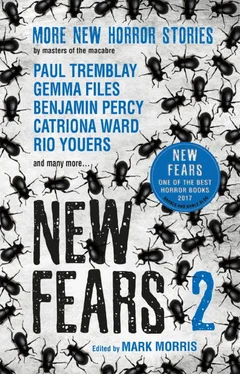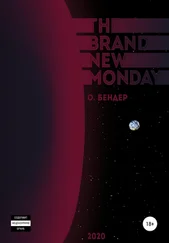You could miss anything. But she didn’t think she would.
There had been good times, too, beyond counting, but the longer this went on, the harder they got to recognize through the growing cataract of now.
* * *
The infinity loop: It always came down to not measuring up. There were so many ways to fail someone, so many iterations, it went on and on, and there was no outrunning it. You could drive until the tyres blew out, then discover you’d been carrying the baggage in your trunk all along.
Sometimes the reminders came from people who meant no harm.
“How’s David doing?”
“He’s got the world by the tail, Daddy. He’s got a new lease on life. It must feel amazing to be so admired by someone that much younger. It’s hard to compete with that.”
And sometimes the reminders came from people who knew exactly where to stick the daggers. Their aim would be the last thing they ever forgot.
“When your grandmother was going through this, I took care of her. I took care of my mother.”
Although Mom didn’t come right out and say so, the implied contrast couldn’t have been more apparent. It wasn’t what she didn’t say, it was how she didn’t say it.
“I did her laundry. I did the vacuuming and dusting once a week. I made sure she didn’t lack for anything. Anything. And I visited her. I sat with her like it wasn’t an imposition, unlike some people I know. And I was glad to do it, every time, because we never knew if that might be the last.”
So many answers, so many combinations. Like a slot machine, pull the lever and see what comes up.
[A] Yes, you did. You absolutely did, and I admire you for that. It can’t have been easy. It’s only now that I can appreciate how hard it must’ve been.
[B] Remember when you yelled at her and made her cry and said you hoped somebody would shoot you if you ever got like her? That time you didn’t sound very glad.
[C] Uh huh. Because you could. Because Daddy made sure you had the freedom to do it. He worked full-time in insurance with a side-gig in real estate to make sure you never had to work outside the home if you didn’t want to.
[D] The reason you could do that is because you pulled her out of her home and moved her seventy miles to an assisted living facility three miles from your garage door. And guess who won’t hear of that for herself?
[E] None of the above. Because sometimes, if you didn’t find a way to break the loop, get out of the rut, the loop would break you.
“Okay, I’ll help you,” Casey said instead. “What you’ve been asking for? I’ll help you. I just have to know one thing. Has it only been talk from you, all this time, or is it what you really want?”
For a change, her mother didn’t scurry back from being offered exactly what she said she wanted. So Casey told her how it had to be to work.
She’d once heard it said that success in life could be correlated with the number of uncomfortable conversations you were willing to have. Well, this was uncomfortable, profoundly uncomfortable, but nothing about it felt like success. A conversation like this reeked of failure. This was a conversation of last resort.
At least they’d only have to have it once.
* * *
What got to her most was hearing her mother murmur about being cold. A thing like that hurt to hear and nearly made her get them back in the car and turn around, because it didn’t arise from looking for something to complain about. A thing like that was real. It was primal. Because it was late November and the air promised winter, so of course her mother was cold. Anybody would be.
She’d worn her coat for as long as she could, for as long as Casey dared let her. But the town was never that big, so the drive was short, through the streets of her childhood and the roads of her youth, and the old byways along the edges where she and her friends had learned to live and lurk beneath the notice of adults.
She knew where to drive to. Knew where to park so the car would never be seen, not as long as it was night. The trees were thirty years taller, and the old woodland paths still the same. It just took longer to walk them this time.
“I have to take your coat now, Mom. I told you back at the house, it’ll look better if you’re not wearing a coat.”
She needed some coaxing, but finally complied. Housecoat, slippers… she looked the part. It would work. Tragic. This happened more than people realized.
“I can’t go with you past here, Mom. I’m sorry. But all you have to do is keep going a little farther. The walk isn’t that long. The highway’s right through there.”
And as Casey watched her go, she thought of the rumours she’d heard all her life, of women who enjoyed lifelong good relationships with their mothers. My mom’s my best friend. I want you to meet my daughter, the best thing that ever happened to me. She was pretty sure she had never encountered one.
Squabbles? Sure. Nattering? Naturally. Blow-ups? On occasion, but never bad, and five minutes later everything was forgotten.
These women had to exist, but there was a measure of relief in suspecting they didn’t. They were tricks of light and swamp gas. They were cryptids, creatures that had gone extinct fifty thousand years ago, that someone thought they’d seen. They were mythological, avatars of an ideal worth striving for, but impossible to attain in the real world.
She’d done the best she could. Maybe they both had.
What a horrible thought.
And as she drove back in the darkest depths of the night, to wait for the phone call in the morning, it went okay for an hour. Until she came to the first of the blood-smeared crossings where the last of the season’s deer had come to die.
Mile after mile, she thought she saw them from the corner of her eye, emerging from the darkness into the edge of her headlights, and she swerved to miss them. But there was always another one ahead, until she realized no, these weren’t deer, they were her mother, tottering out of the night, so in time she stopped swerving, because if she was ever going to get home, she’d have to keep driving through the woman, every chance she got.

SENTINEL
Catriona Ward
Anna droops in the green wing chair, black skirts spread about her. Night comes in through the open doors, warm and speaking. Wisteria, oleander, flowers that bloom as briefly as a gasp. The distant road is quiet. No neighbours but the dark and the trees. She thinks of the afternoons she spent as a child under the spreading reaches of those woods. She swore she’d get away from here and she did. But death has hurtled her back, the pendulum swinging over the fixed point.
Ma died the day after Anna came home, as if that had been the signal. By the end her faculties were blunted into nothing by stroke. She stared ahead or inwards. You could raise her arm and it would stay there. Her face was a carnival mask. Her lip drew up over her yellow teeth in a gunslinger’s snarl. Her body seemed barely tenanted. There was no sign of her passing. It was the nurse who told Anna that she held the hand of a corpse.
Sweat prickles on Anna’s brow, her palms. She should put out the lights, go upstairs and sleep. But she does not. If she sleeps now, her mother is truly dead and buried. When she next opens her eyes it will be to a world without Ma.
Her legs ache. Funerals require so much standing. Images flicker through Anna’s mind like sparks from bad circuitry. The Reverend’s red, sore nose, dripping. Soft rain on black umbrellas. Fresh-turned earth. Curling sandwiches, picked over by many fingers. The slight clunk, like a turnstile, as the coffin settled into the ground. Anna had hoped to feel lighter afterwards—that one burial might serve for all the past. She had wondered if she might feel free. She feels tired.
Читать дальше













